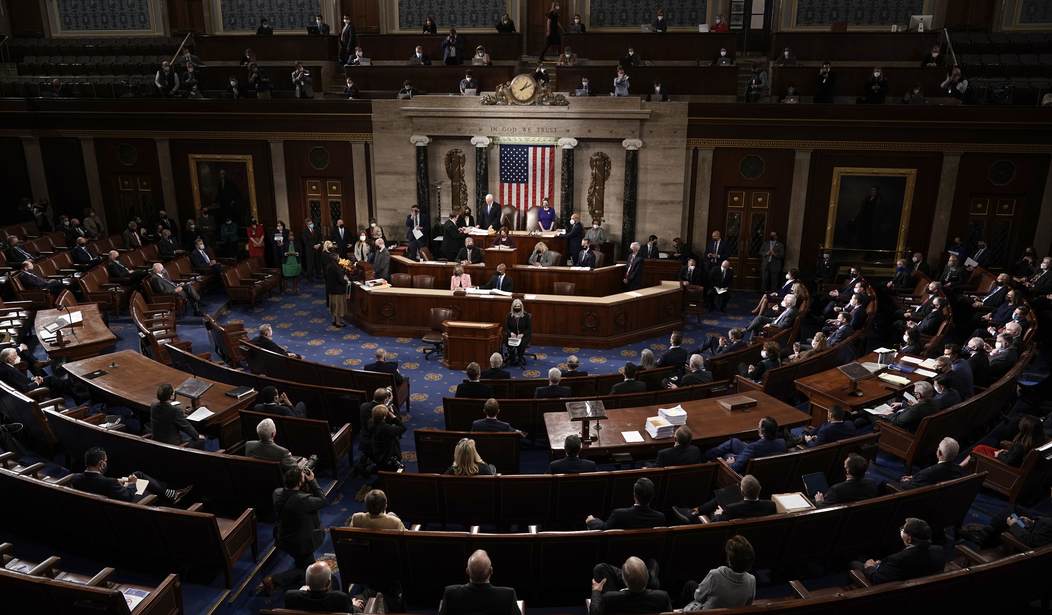"With great power comes even greater responsibility." Though this maxim most-likely was born in French politics of the 18th century, it very much applies to our elected officials in the 21st century.
But, far from just a hopeful, high-minded missive, in our system of government there are actually built-in laws and rules that require this “greater responsibility“ from our political leaders--our ethics laws. Though not nearly as high-profile as votes, floor speeches, and TV interviews, Members must be aware they are now governed by a set of rules designed to ensure integrity and transparency and it's critical they follow them. Based on the past...many will struggle. In hopes of avoiding this, here are some repeated ethics missteps and temptations for them to avoid, and my hope is that every Member does.
Perhaps the most common violation Members make is failing to file complete and accurate financial disclosures. Disclosure is the only method for voters to determine whether a Member has a conflict of interest or personally benefits from his or her official duties. Yet, time and time again Members don’t file timely or accurate disclosures. One example from the last Congress is Rep. Matt Cartwright of Pennsylvania who failed to include his wife’s income on two years of financial disclosures, a clear violation of the rules. Concerning in this case was that he had included his wife’s income in prior years and his wife was a partner in a specialized law firm--one that would have benefitted from legislation Cartwright sponsored. Cartwright was later forced to amend his disclosure forms.
In an attempt to curb insider trading and conflicts of interest, the STOCK Act required Members to disclose financial transactions to the public in a timely manner. For instance, if a lawmaker is trading individual stocks they must disclose the trades within 45 days. In 2020, FACT filed two ethics complaints against (now former) Rep. Donna Shalala of Florida for failing to disclose financial transactions within the required 45 day window. In both instances the transactions were reported well past the deadline and only after coming under scrutiny. Failure to report this vital information is not only a clear disregard for transparency and violation of the law, but it inhibits the public’s ability to determine whether the Member is regulating an industry and then receiving a personal financial benefit. In this case, Rep. Shalala was fined.
Recommended
In addition to fulfilling their Congressional duties, Members are often simultaneously running for reelection. One unfortunate trend has been for candidates to coordinate with outside groups. This is illegal. During the last cycle, FACT filed multiple complaints against Gary Peters of Michigan, Sara Gideon of Maine, Theresa Greenfield of Iowa, and Cal Cunningham of North Carolina for coordinating with outside political groups, constituting illegal in-kind contributions to their campaigns. Unfortunately some of the same Members who decry super PACs have used their campaign websites to communicate with them, giving precise direction on advertising, including messaging content, campaign photos and videos to be used in the ads, and media markets in which to run them. There is no doubt super PACs and other outside groups are republishing official campaign photos and video in their advertisements. Whether the FEC acts on these violations is another issue, but it is obvious some campaigns are operating in a manner that violates the purpose of the law and their official campaign materials are being republished by super PACs.
Ultimately, our elected officials are beholden to those they represent. But the burden falls on the public to hold candidates and elected officials accountable. Those running for office must be held to the highest ethical standard, as many will later be sworn to defend the laws of the United States. People wishing to engage in the political process have a duty to familiarize themselves with the laws governing their activities--and to then follow them both before and after being elected. In this day and age, there are simply no excuses for cutting corners by skirting federal ethics laws.
Kendra Arnold is the Executive Director of the Foundation for Accountability and Civic Trust (FACT).
























Join the conversation as a VIP Member